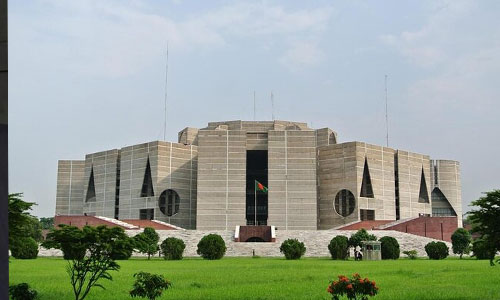The report reinforced the message that without meaningful reform of the civil service, broader economic and social development goals would remain elusive. The work of Hon. David Butcher and Dr. Graham Scott helped position the World Bank’s civil service reform strategy on more realistic, evidence-based foundations—bridging the gap between policy vision and administrative capacity in Bangladesh.
— Bangladesh —
reform. alignment. strategy.








Revitalizing Public Administration: Reforming Bangladesh’s Civil Service
“Without a modern and accountable civil service, economic reform cannot be sustained—only stalled.”
— Hon. David Butcher, Former Minister, Government of New Zealand and Senior Advisor, GG International
Challenge
By the early 1990s, Bangladesh faced growing pressure to modernize its public institutions to match the country’s evolving development agenda. The Bangladesh Civil Service (BCS)—a legacy of colonial and post-independence administrative systems—was widely seen as rigid, hierarchical, and poorly aligned with the demands of a modern, market-oriented economy.
The system struggled with low productivity, politicization, limited accountability, and outdated personnel practices. Despite commendable individual talent, systemic inefficiencies undermined both policy implementation and public trust.
In 1994, the World Bank commissioned a high-level analysis to support its broader Civil Service Reform (CSR) agenda in Bangladesh. This work was undertaken by Hon. David Butcher, a former minister in the New Zealand Government and advisor at GG International, in collaboration with Dr. Graham Scott, former Secretary to the New Zealand Treasury. The goal was to provide a strategic assessment of the civil service’s structure, incentives, and institutional performance.
Strategy
The resulting report formed a cornerstone input into the World Bank’s civil service reform dialogue with the Government of Bangladesh. It provided:
- A diagnostic roadmap highlighting institutional bottlenecks and reform entry points.
- Assessment of institutional culture and its impact on service delivery, corruption, and morale.
- Comparative benchmarking against reform programs in other Commonwealth and developing countries.
- Policy alignment recommendations, ensuring that reform efforts complemented Bangladesh’s economic liberalization program.
The analysis emphasized that civil service reform must be linked to broader governance reforms, including budgeting, accountability mechanisms, and the relationship between political and bureaucratic leadership.
Transformation
The resulting report formed a cornerstone input into the World Bank’s civil service reform dialogue with the Government of Bangladesh. It provided:
- A diagnostic roadmap highlighting institutional bottlenecks and reform entry points.
- Recommendations for merit-based recruitment, incentive reform, and depoliticization of promotions.
- A call for strengthening the Public Service Commission and civil service training frameworks.
The work contributed to the early intellectual foundation of Algeria's public sector reform agenda, influencing later privatization efforts and institutional redesign. It also reflected the broader shift in World Bank advisory work at the time—from mere structural lending to deep institutional diagnostics led by global public sector reform experts.